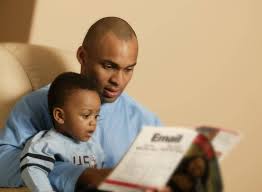|
As you know, I am absolutely passionate about the science behind sleep and helping you and your family finding your way to the sleep you need and deserve. What I’ve found along the way is that it’s not only sleep that weighs in. Nutrition and child development is as important and also goes hand in hand with sleep.
I think most of us have heard or read about the importance of talking to our children to help them with their speech and language development. But did you also know that this will help your kiddo later on in life with things like math, reading and social abilities? So no matter no matter what their age, it is important to talk to children. I always tell parents to tell their kids what they are doing so that they begin to understand but also because it’s great to hear so many words. “Children learn best from speech directed to them by their caregivers creating conversations that build on children’s interests.” And for those of you who are thinking that they can give their child the same benefits by having adult conversations when your child is with them I have to tell you that unfortunately ambient speech will not have the same results. Children thrive when being addressed and engaged in a conversation. This all sounds good but how do you do it without feeling foolish talking to yourself? Here are my top 5 tips on how to talk more with your kiddo to make it feel more natural: 1. Narrate your day. When I was on maternity leave I talked to baby T about what I was doing, what was around us, describing colors and shapes or talking about how things work. It could be things like, “Mama’s going to wipe your little bottom now and change your diaper so you don’t get a rash” or when out grocery shopping “We are going to need an apple, some carrots and broccoli for our salad today. What color apples do you think we should get? Red or green?”. 2. Sing and talk when playing with your kid. Play peek-a-boo and other games where you practice taking turns, talk about what you are playing and what is happening in your games. This also helps them understand how a conversation works. Sing songs where you use your body to describe what is going on, like “Itsy Bitsy Spider” or “Wheels On The Bus”. Describe the colors and sounds of toys you’re playing with, i.e. “The zebra is black with white stripes” or “What sound does the duck make?” 3. Talk about what is going to happen throughout the day. Like “Today we are going to go on a play date with your friend Oliver and in the afternoon we have a check up at BVC (healthcare center for children in Sweden) to weigh and measure you.”I’ve found that as your child grows it is actually quite good to talk to them about what activities you have planned for the day. It gives them a sense of control knowing what’s up next. And even if they don’t remember, you can remind them throughout the day of what the plans were, i.e. “We’ve met your friend and after lunch we’re off to BVC”. It doesn’t eliminate tantrums entirely but it helps your child feel more included in what’s going on and not be ambushed by new things. 4. Encourage others to talk to your child! Grandma’s, grandpa’s, friends who also interact with your kiddo, ask them to engage in conversation with them and let them know of the benefits of doing this. 5. Read to your child. Books stimulate your child’s imagination and you can also pause and ask them questions while reading. For example “What do you think will happen next?” Let me know what tips and advice you have for talking more with your children in the comments below! Resources: Talking with children matters: Defending the 30 million word gap Roberta Michnick Golinkoff, Erika Hoff, Meredith Rowe, Catherine Tamis-LeMonda, and Kathy Hirsh-PasekMonday, May 21, 2018 https://www.brookings.edu/blog/education-plus-development/2018/05/21/defending-the-30-million-word-gap-disadvantaged-children-dont-hear-enough-child-directed-words/ Barns språkutveckling 19 Apr 2018, kl 08:11 http://www.babyhjalp.se/barns-sprakutveckling/ Comments are closed.
|
- ABOUT
- Books
- Sleep Services
-
Parent resources
- Awake WIndows and Naps
- Newborn Awake WIndow
- Milestones and regressions
- Understanding Baby Sounds
- Baby Sign Language
- Example Schedule - Newborn
- Example Schedule - 3 to 6 months old
- Example Schedule - 6 to 8 months old
- Example Schedule - 9 to 12 months old
- Example Schedule - 13 months+
- Example Schedule - Toddler
- Blog
- Contact


